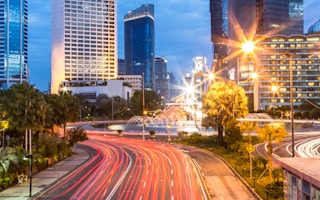A strong sense of déjà vu has been a constant companion on my recent trips to Indonesia. Several proposed clean energy projects I was shown by local developers were exactly the same ones I had reviewed (but did not like) at various times over the past five years.
It turns out that these projects have not progressed at all since then, a reminder of how hard it is to get clean energy projects off the ground in Indonesia. This is in spite of the fact that the country is crying out for distributed energy generation that uses local and natural resources due to its spread over more than 17,500 islands; vulnerability to climate change; vast swath of the population without access to the electricity (20 per cent or about 63 million); frequent rolling blackouts; and an electricity demand increasing by 9 per cent per year.
It all points to a massive opportunity in clean energy which must be seized by the new president.
The recent election of Joko Widodo on 22nd July 2014, known by many as “Jokowi”, has widely been hailed as a major political turning point for the world’s fourth most populous country. When he takes up office in October, he will be the first President in the post-Soeharto era with no direct links to the authoritarian ‘New Order’ regime, and many are hoping that with his reputation for integrity and for getting things done, the country may now enter a new phase in which governance reforms will be more substantive and intensified, especially in the fight against corruption.
One of the many challenging tasks facing the new President will be Indonesia’s energy policy, which provides an excellent opportunity to unleash the potential of clean energy and distributed generation to not only boost the economy and energy security but also to help Indonesia play its part in reducing greenhouse gas emissions as one of the world’s top ten polluters.
Energy policy has failed to deliver
Despite Indonesia’s stable and resilient economic expansion over the past several years, its energy policy has failed to deliver a robust energy infrastructure that can meet growing demand and increase access to energy. The focus has been on utilizing its vast local fossil fuel resources, while relying on expensive diesel generators for off-grid areas (15 per cent of the country’s electricity). Market reform over the last 10 years has, despite heading in the right direction, not met its aims of attracting investment in energy infrastructure, mitigating pollutant emissions, or scaling up renewables. Energy subsidies have been the main policy tool to keep prices down for the consumer and these have led to an inefficient and expensive system that hinders overall economic growth.
Given the geographical challenges posed by Indonesia’s collection of islands, distributed generation utilizing renewable resources makes sense because of the expense and difficulty in building transmission and distribution systems following the normal Western modern of centralized generation transported huge distances to where demand is.
Indonesia is a laggard in renewables
“
Indonesia is crying out for distributed energy generation that uses local and natural resources due to its spread over more than 17,500 islands; vulnerability to climate change; vast swath of the population without access to the electricity (20 per cent or about 63 million); frequent rolling blackouts; and an electricity demand increasing by 9 per cent per year.
Instead, Indonesia has been remarkably slow to develop its vast renewable resources, especially when compared to some other countries in the region.
Resources such as geothermal and solar are among some of the best in the world but operating power plants are limited compared to their realizable potential. For example, despite a geothermal resource potential of around 27.5 GW (40 per cent of the world’s geothermal resources) only about 1.2 GW has been developed (including a 117MW project where Sindicatum is involved). Likewise, for solar which witnessed rapid uptake in countries such as China, India, Japan, Thailand and more recently the Philippines, Indonesia’s installed capacity is, at 12 MW, ridiculously low and a tiny, tiny fraction of its potential. Waste resources, from municipalities, agriculture and industry have not been utilized with any great success, and financing opportunities such as the Clean Development Mechanism which sparked considerable interest and investment a few years ago, have now subsided with the collapse of carbon markets worldwide, leaving projects like Sindicatum’s PT Biogas struggling to operate without carbon financing or any other enabling mechanism.
During the election campaign, Joko Widodo proposed a reallocation of the budget devoted to fuel subsidies to other sectors (including gas infrastructure development and exploitation), a reduction in the burden on the state budget and dependency on imported oil. Part of this reallocation would go to encourage the biofuel industry as well as further exploiting renewable energy sources such as geothermal. The removal of subsidies and a reallocation of that budget would be a great start in leveling the playing field for many other sources of power generation that are becoming ever more competitive, and the new President needs to follow through on this pledge. However, a lot more is required, both to remove the debilitating delays and regulatory hurdles that many projects incur, and long term mechanisms that will attract both domestic and foreign investment.
Regulatory reforms are overdue
For example, foreign investment in power plants at 1-10MW scale is currently limited to 49 per cent under the new investment Negative list (also known as Daftar Negatif Investasi, April 2014) which specifies business activities which are either entirely closed or conditionally open to foreign investment.
Land acquisition, grid connection and legal uncertainties serve as a further deterrent to doing business and feed-in-tariffs – although announced for some renewables – have not resulted in the level of uptake that they should, partly because of a lack of coordination between the policy measures and the department/organizations that administer or implement them, including the owner of the transmission and distribution system and the main buyer of electricity.
To even meet Indonesia’s modest target of increasing renewable generation to 17 per cent of total energy consumption by 2025, a far more coordinated and consistent approach is required across the energy sector which not only rearranges the fossil fuel subsidies towards cleaner sources and efficiency, but also acknowledges that projects will not be built or financed if they cannot receive timely permitting, planning permission and financeable power purchase agreements.
A decentralized and smarter approach to energy planning is required
As recently recommended by a report by the Climate Markets & Investment Association, Indonesia’s energy policy needs to:
- Dare to invest in variable generation and not focus on base-load generation only;
- Involve local administration; and,
- Use all local resources, including municipal waste
All these recommendations point to a more decentralized and smarter approach to energy planning which learns from past mistakes.
As the new president gets sworn-in on 20th October, there is a clear opportunity to be seized, if not this will have both implications on Indonesia’s economy as well as its contribution to fighting climate change.
The better utilization of Indonesia’s renewable resources, such as solar, geothermal, biomass, biofuels and biogas, have an important role in a robust, high quality and low carbon energy system, that given the geographic nature of the country would benefit from smarter grid systems and distributed generation closer to demand.
Indonesian people deserve better, cleaner and more cost effective energy services as they develop further into one of the world’s major economies. It’s time to deliver.
Jay Mariyappan is a managing director at Sindicatum Sustainable Resources. This post originally appeared on the Sindicatum blog.


















